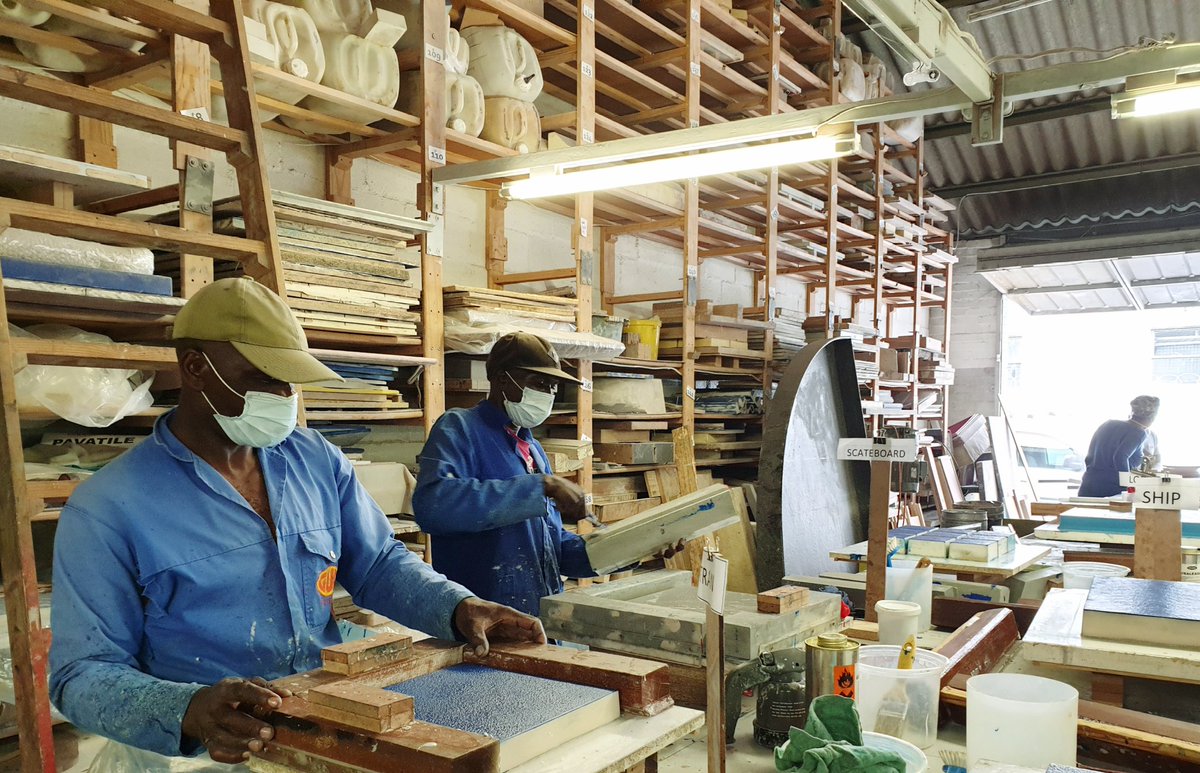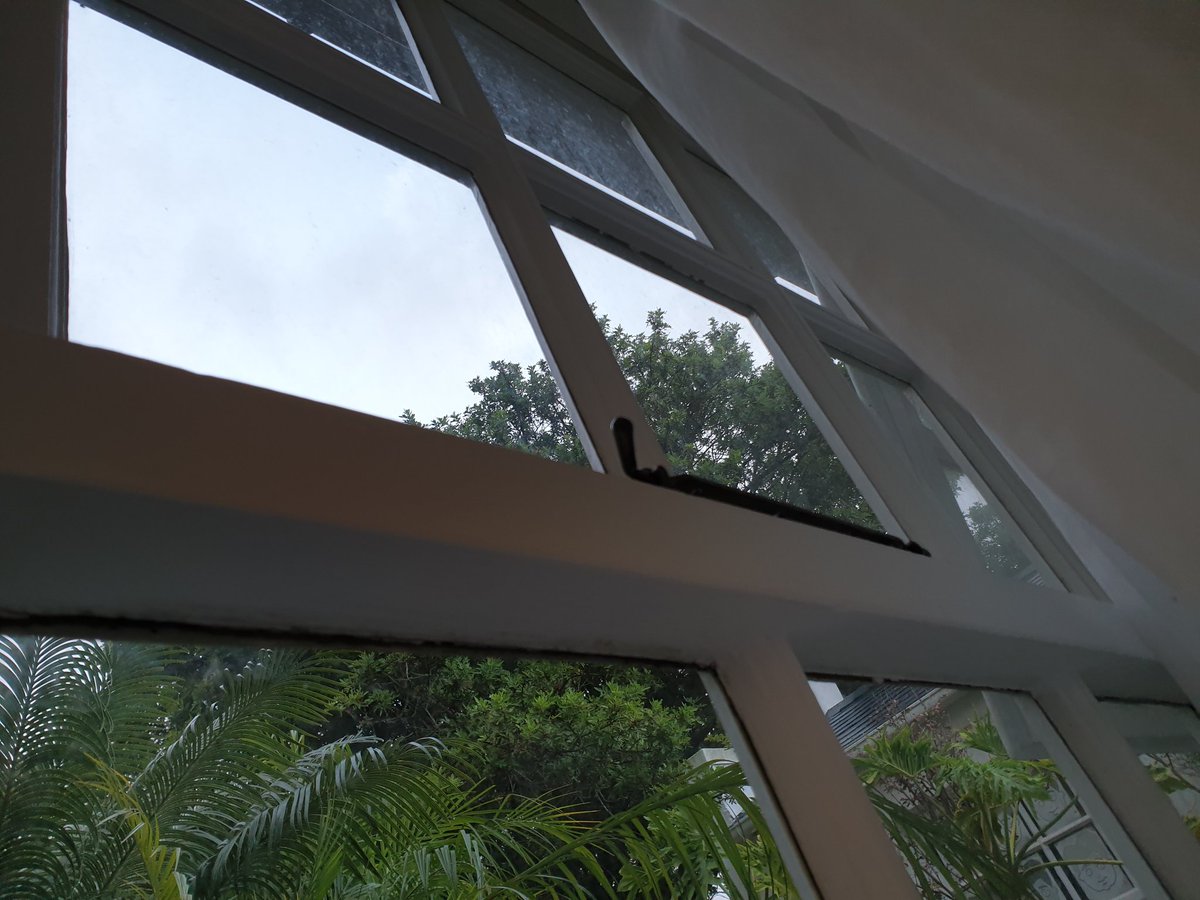Check your knowledge. Retweet for awareness.
For nonspeaking autistic people, good fine motor skills and coordination are rare.
Expressive facial communication, fancy dance movements -- these things are SUPER difficult for many nonspeakers because of...
For nonspeaking autistic people, good fine motor skills and coordination are rare.
Expressive facial communication, fancy dance movements -- these things are SUPER difficult for many nonspeakers because of...
The reason why I am doing this poll is because recent representations of a fictional nonspeaking autistic character in some entertainment videos doesn't take the actual problem into account at all.
This can create a huge misunderstanding of autism, because to non-autistic people, the character looks autistic, so the character informs people's picture of autism.
This false mental image of autism makes it harder for people to understand why REAL nonspeaking, minimally speaking and unreliability speaking autistic people struggle with talking and with many other things.
If you have "autism awareness" but the thing you're aware of isn't real autism, you are not going to support nonspeaking autistic people in getting help with the things they say is most important to them.
You may "accept them as they are" without actually advocating for their real needs.
This is not OK, and I'll explain why.
Nonspeaking autistic people want to and need to communicate.
Not only basic things like bodily needs and food preferences, but nuanced things like the choice of a political candidate, the specific details of how they love you, how to address climate change, or where exactly the perpetrator put her hand and on which day it happened.
If you do not understand the primary obstacles to communication in the majority of nonspeaking autistic people BECAUSE YOU NEVER READ WHAT THEY SAY OR LISTEN TO THEIR TEXT-TO-SPEECH APPS OR OTHER MODES OF COMMUNICATION, if autism is just a feel-good entertainment theme to you...
...then you probably think, well, hey, that's fine, because there are plenty of autism organisations and experts out there who know all this stuff and it's their job to take care of it.
AND
YOU
WOULD
BE
WRONG.
AND
YOU
WOULD
BE
WRONG.
See, while there are many nonspeaking autistic people out there who are communicating in nuanced ways and writing blogs and the like, the vast majority of nonspeaking autistic people globally are NOT communicating in these detailed ways at all because they are being disabled.
That wasn't a grammatical mistake. I meant that this is being done to them. There are barriers in place.
When a software feature is disabled, it means it is turned off whereas it COULD be turned on.
Nonspeaking autistic people are being disabled when they could be enabled.
When a software feature is disabled, it means it is turned off whereas it COULD be turned on.
Nonspeaking autistic people are being disabled when they could be enabled.
It is true that some nonspeaking autistic people are mystics, and there are definitely ways of communicating which cannot be done in words.
But...
But...
...if your rainbows 'n fairies concept stops you from enabling word-based communication for those capable of using it, you're a cog in a disabling system which violates a basic human right.
Because communication is a human right.
Because communication is a human right.
If you think that I am recruiting you into some scheme to donate money or become a therapist, lobbyist or whatever, don't worry, I'll give you the barebones bottom line right away; the rest is optional, and it's for those who have a passion for it.
Here it is:
Share the words of nonspeaking autistic people who explain what they need and what helps.
That's all. You don't even have to help. Just share their words.
Not sure how? Here's a video. It's 4 minutes long. Watch it and share it. That's all. tania.co.za/reframing-seve…
Share the words of nonspeaking autistic people who explain what they need and what helps.
That's all. You don't even have to help. Just share their words.
Not sure how? Here's a video. It's 4 minutes long. Watch it and share it. That's all. tania.co.za/reframing-seve…
Now, if you find all this interesting, or if you have a passion for justice, or poetry or beauty, then by all means, go deeper. Read more.
https://twitter.com/ekverstania/status/1276448982496092160?s=19
Learn how discrimination multiplies when you're marginalised in more ways than just by disability.
https://twitter.com/ekverstania/status/1273685175189331968?s=19
And now for a rather surprising fact: many of the people who disable nonspeaking autistic people work in the autism industry.
I'm not talking about a few bad apples. I'm talking about systemic oppression of vast numbers of nonspeaking people.
This is not a conspiracy theory.
I'm not talking about a few bad apples. I'm talking about systemic oppression of vast numbers of nonspeaking people.
This is not a conspiracy theory.
I know it sounds like one. But I will explain briefly.
See, some of the most pervasive autism treatments today are based on old, harmful misconceptions about autism. Instead of being abandoned, the industries that grew around these treatments simply modernised and the people in charge cemented their power.
While conversion therapy is being phased out or banned for use against gay people, it is still going strong for autistic people and mostly done without consent; it just has a different name: ABA. Here's what some nonspeakers say about it: tania.co.za/non-speaking-a…
Right, briefly back, then I must go to bed. I want to leave you with a thought and then I will update this tomorrow...
As you will have seen from the video earlier (Reframing 'Severe' Autism), a typical nonspeaking autistic profile includes:
- apraxia
- extreme anxiety
- extreme sensory sensitivities.
Now...
- apraxia
- extreme anxiety
- extreme sensory sensitivities.
Now...
If your script has a character who
- dances with agility and uses nuanced facial expressions
- can handle pressure with aplomb
- isn't bothered by flashing lights, noise and surrounding movement,
then...
- dances with agility and uses nuanced facial expressions
- can handle pressure with aplomb
- isn't bothered by flashing lights, noise and surrounding movement,
then...
Maybe a nonspeaking autistic performer you initially brought in couldn't cope with the demands of the role...
...BECAUSE THE CHARACTER YOU HAVE CREATED ISN'T ACTUALLY THAT OF A NONSPEAKING AUTISTIC PERSON?
...BECAUSE THE CHARACTER YOU HAVE CREATED ISN'T ACTUALLY THAT OF A NONSPEAKING AUTISTIC PERSON?
PS
In case you feel I've oversimplified things and you want to say, "Wait, autistic people are not all the same; some are [whatever]" -- then ja, I know; if you want to be assured that I know, check out my video titled Paradigm and moan if it's not OK:
tania.co.za/4-focus-areas-…
In case you feel I've oversimplified things and you want to say, "Wait, autistic people are not all the same; some are [whatever]" -- then ja, I know; if you want to be assured that I know, check out my video titled Paradigm and moan if it's not OK:
tania.co.za/4-focus-areas-…
Good afternoon, I'm back! I picked these wild things on my walk with my mother this morning.
Now, back to our topic.
Now, back to our topic.

As @MSwampcroft and @NeuroClastic have indicated, we need to disambiguate the terms
🟡 nonverbal,
🟡 nonspeaking,
🟡 mute,
and other related terms.
I will do so over the next few days.
🟡 nonverbal,
🟡 nonspeaking,
🟡 mute,
and other related terms.
I will do so over the next few days.
As @EmilioLees pointed out, the just-three-options in the original poll can also be misleading.
We'll get to that.
This will also help us to understand different autistic profiles.
We'll get to that.
This will also help us to understand different autistic profiles.
I believe that it will become clearer why the imaginary character invented by @Sia (who appears in the #Music videos she released so far) is unlikely to ever exist as a genuine autistic person in the real world.
It will further explain why @Sia struggled to find a real nonspeaking autist (or even a speaking autistic person) to fit the part of her magical rainbowcloudfairy. 
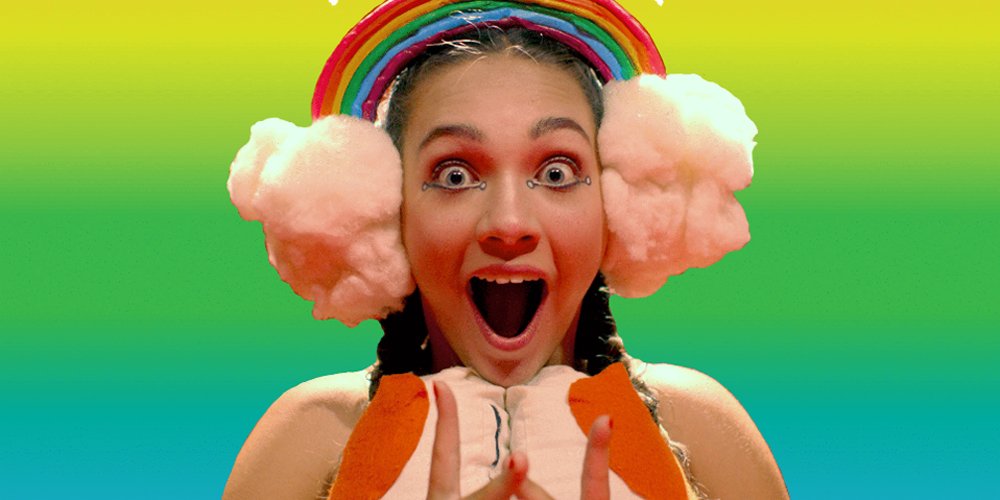
Before we get there, though, I'd like to share the official statement on the #WeSupportYouSia furore by the nonspeaking board members of the civil rights organisation Communication First.
https://twitter.com/Communica1st/status/1330185017989996545?s=19
Later on we can talk about why Sia was completely surprised by the backlash she received on social media even though she says she consulted an autism organisation, Autism Speaks, and several autistic people.
I believe that Autism Speaks is most likely to blame for a good deal of the mess which is going down now.
For now, I'll just touch on a few reasons why I think so.
For now, I'll just touch on a few reasons why I think so.
See, no matter when they were consulted -- at the beginning or the end of the process -- Autism Speaks would have been able to advise @Sia on the possible backlash she'd get from autistic people on social media, because they often face such opposition from autistic people too.
It seems that they didn't.
It seems that @autismspeaks also didn't warn @Sia about the dangers of presenting a deftly dancing rainbowcloudfairy as a portrait of a nonspeaking autistic person, and how this misrepresentation could inadvertently contribute to ableist abuse.
It seems that @autismspeaks also didn't warn @Sia about the dangers of presenting a deftly dancing rainbowcloudfairy as a portrait of a nonspeaking autistic person, and how this misrepresentation could inadvertently contribute to ableist abuse.
See, Autism Speaks is infamous among autistic people for partnering with abusers, and that means that when you approach them for advice, there are some things they won't point out to you about autism, apraxia, ableism and disability rights.
ABA is a multibillion dollar industry.
And Autism Speaks’ spokesman said they support the idea that investors should help grow it.
There should be streamlining, he said.
A production-line, streamlined to smash square-peg humans through round holes? tania.co.za/global-autism-…
And Autism Speaks’ spokesman said they support the idea that investors should help grow it.
There should be streamlining, he said.
A production-line, streamlined to smash square-peg humans through round holes? tania.co.za/global-autism-…
A rainbowcloudfairy who, in spite of profound intellectual disability, moves joyously and with great agility, who makes eye contact with the audience and smiles on cue is the kind of outcome which Autism Speaks would like to see from the therapies they promote.
But there's a problem.
For one, most nonspeaking autistic people are not intellectually disabled and they don't have a motivation problem.
There are reasons why they can't respond to novel instructions requiring complex motor planning.
For one, most nonspeaking autistic people are not intellectually disabled and they don't have a motivation problem.
There are reasons why they can't respond to novel instructions requiring complex motor planning.
The autistic spokespeople engaged by Autism Speaks are often people who speak quite well, even if they were late to speak and received speech therapy as children. They are not apraxic nonspeakers and they don't necessarily know anything about the apraxic experience.
So, they may very well echo the misconceptions that the non-autistic leaders of the organisation have created, painting nonspeakers as intellectually disabled souls trapped by inappropriate behavioural responses which require motivation to fix.
Let's revisit these widespread misconceptions.
Remember that formal statement I shared earlier from the nonspeaking board members of the civil rights organisation @Communica1st?
Here is a detailed essay about the misconceptions surrounding 'severe autism' by one of those nonspeaking board members.
Here is a detailed essay about the misconceptions surrounding 'severe autism' by one of those nonspeaking board members.
https://twitter.com/ekverstania/status/1134481225467535360?s=19
This is not the same message which Autism Speaks is giving people.
It is not what they are telling the parents of newly diagnosed children.
It is not what they are telling the parents of newly diagnosed children.
It's not what they are saying about autistic people who have minimal or unreliable speech and who do weird, compulsive, impulsive things and who make odd noises.
See, if Autism Speaks DID tell people all this, they'd have to give up a few things, and that would be hard for them.
They would have to start listening to what actual nonspeaking autistic people say helps them, which is different from what Autism Speaks says they need.
They would have to start listening to what actual nonspeaking autistic people say helps them, which is different from what Autism Speaks says they need.
Let's not dwell further on Autism Speaks for now, but rather discuss some of the issues which nonspeakers want us to learn about.
I've mentioned apraxia quite a lot, so I'm going to drill down there for a bit. (I'll get to mutism later. That's a different thing.)
I've mentioned apraxia quite a lot, so I'm going to drill down there for a bit. (I'll get to mutism later. That's a different thing.)
Here is another apraxic autist, explaining how he experiences apraxia, with comments by a therapist in between.
https://twitter.com/ekverstania/status/1270770065475067907?s=19
The problem isn't just anxiety, sensory overstimulation and that the body has a mind of its own. There's often emotional dysregulation too. Imagine trying to act the rainbowcloudfairy when you have THIS going on!
https://twitter.com/ekverstania/status/1227695775800582144?s=19
Teatime now, and I must go and move my clutter out of the lounge and into the bedroom. 😬
When I return, I'll talk about the type of support that an autistic person needs if they have this profile.
By the way, I made pesto today using cashew nuts and a bit of dhanya with basil.

When I return, I'll talk about the type of support that an autistic person needs if they have this profile.
By the way, I made pesto today using cashew nuts and a bit of dhanya with basil.


Right, I'm back, but I realised I'm going into overload and I still have work to do for my day job, so I am going to pause this thread till later. 

So I am going to leave you with something academic, in case you are interested in that angle: a collection of research papers and other writing on movement issues in autism, curated by Dr. Elizabeth Torres and Anne Donnellan.
frontiersin.org/research-topic…
frontiersin.org/research-topic…
Dr. Torres and Anne Donnellan have been speakers at the annual Motormorphosis Conference, which also has nonspeaking autistic presenters.
I learned some valuable advocacy lessons from these two nonspeaking autistic presenters, which I now apply myself.
I learned some valuable advocacy lessons from these two nonspeaking autistic presenters, which I now apply myself.
https://twitter.com/ekverstania/status/1208121664011210752?s=19
Good afternoon! I'm working from a neighbour's house today (while they're stuck in Europe) to maximise distancing and ventilation for the cleaner who has come to work at our house.
I still have to go to the factory this afternoon to film how they're streamlining processes...
I still have to go to the factory this afternoon to film how they're streamlining processes...
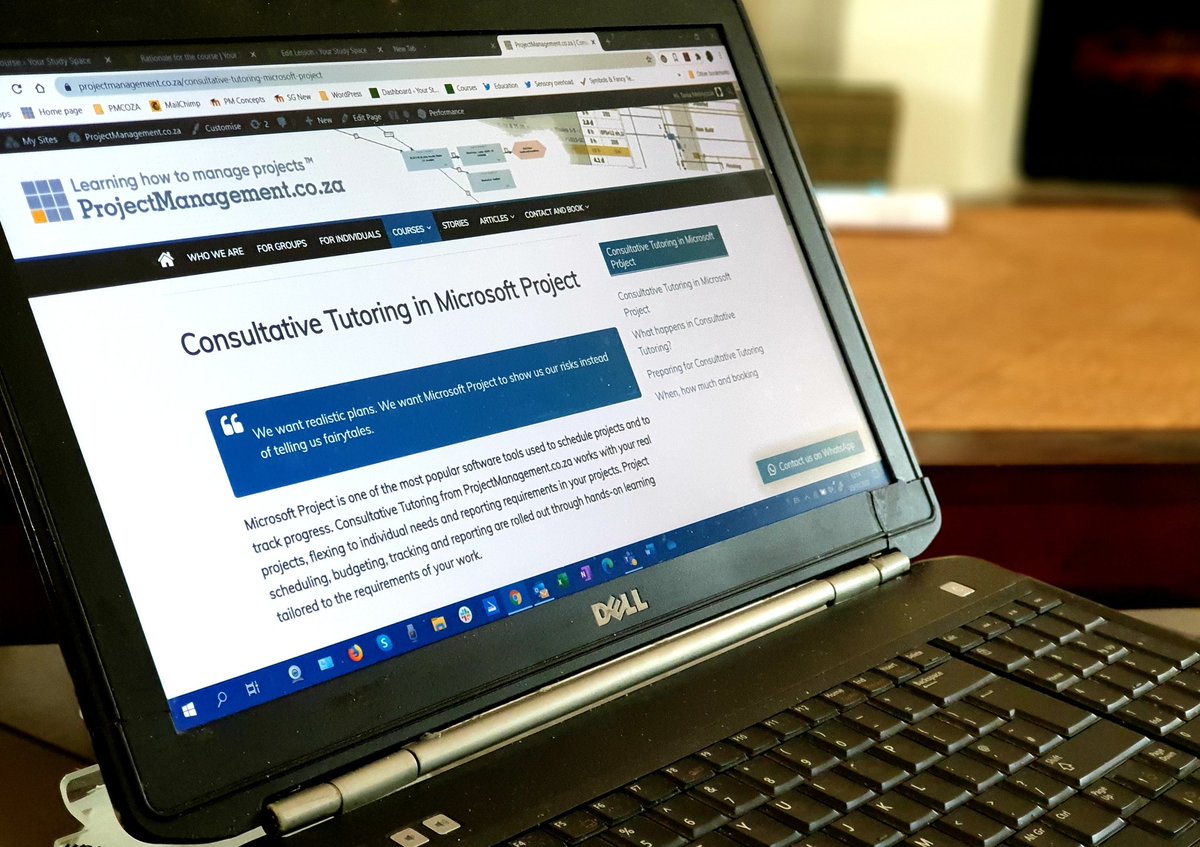
But I wanted to briefly mention this, because over the past two days I've noticed a lot of autistic people with communication disabilities feeling like they are not being heard or included because these terms are used in different ways by different people.
https://twitter.com/ekverstania/status/1330469455332339714
Earlier in this thread, I profiled Damon Kirsebom, who has a typical nonspeaking autistic profile.
https://twitter.com/ekverstania/status/1330231916985987073
I also mentioned that autism is highly variable. We're not all the same.
https://twitter.com/ekverstania/status/1330274167309086722
I'd like to highlight two threads posted by other autistic people which are valuable to understanding some of the other profiles.
I can relate to a few aspects of both, although most of my own speaking struggles lie in the past, especially when I used to suffer from severe sensory overstimulation.
If you want to go off on a tangent, watch my 2015 video about sensory overload. 😊 tania.co.za/my-first-video…
If you want to go off on a tangent, watch my 2015 video about sensory overload. 😊 tania.co.za/my-first-video…
First, a useful thread by @autistictic, who explains terms like nonspeaking and nonverbal in ways which align to their use by organisations with whom I collaborate in advocacy.
https://twitter.com/autistictic/status/1330455847785394178
The distinction between "nonverbal" and "nonspeaking" also appears in this keynote address to the United Nations by nonspeaking activist and filmmaker DJ Savarese (and elsewhere in his writing).
https://twitter.com/ekverstania/status/1293307964187713537
The second helpful thread is by @A_Silent_Child. You will see how this autistic profile is different from that of Damon and DJ, but without support and accommodations, it is still the basis for a significant and distressing communication disability.
https://twitter.com/A_Silent_Child/status/1330235855089364995
Since this is primarily an 'awareness' thread, the heterogeneity of communication disabilities among autistic people leads me to point to an organisation which advocates for the rights of people with ALL these struggles.
I mentioned them earlier in this thread, and I'm going to copy and paste some text from their site over the next few tweets, because I think it amplifies the point behind why such an organisation is needed.
"CommunicationFIRST (@Communica1st) advocates to ensure every person has the support they need to express themselves effectively—and to be heard."
"Because everyone who finds it difficult to be understood when speaking faces similar discrimination, misperceptions, and low expectations, and because laws and policies around communication access govern regardless of the cause of the communication disability..."
"...CommunicationFIRST (@Communica1st) is intentionally cross-disability in focus."
"We strive to serve the interests of our diverse membership with speech-related communication disabilities, regardless of whether they have found the means to communicate effectively..."
"...or whether they continue to search for robust augmentative and alternative communication supports that work for them."
"Our membership constituency includes people of all ages with over two dozen known and unknown expressive communication-related conditions and disabilities—congenital, developmental, and acquired later in life—including those listed below."
Amyotrophic Lateral Sclerosis (Lou Gehrig’s Disease)
Aphasia
Aphonia
Apraxia of Speech
Autism
Cerebral Palsy
Cleft Lip and Cleft Palate
Dementia
Down Syndrome
Dysarthria
Friedreich Ataxia
Huntington's Disease
Laryngeal Cancer and Laryngectomies
Locked-In Syndrome...
Aphasia
Aphonia
Apraxia of Speech
Autism
Cerebral Palsy
Cleft Lip and Cleft Palate
Dementia
Down Syndrome
Dysarthria
Friedreich Ataxia
Huntington's Disease
Laryngeal Cancer and Laryngectomies
Locked-In Syndrome...
...Multiple Sclerosis
Muscular Dystrophies
Parkinson’s Disease
Rare Genetic Syndromes, Diseases, and Disorders, including ADNP, Angelman, Rett, and Congenital Disorders of Glycosylation (CDG)
Selective Mutism
Spasmodic Dysphonia...
Muscular Dystrophies
Parkinson’s Disease
Rare Genetic Syndromes, Diseases, and Disorders, including ADNP, Angelman, Rett, and Congenital Disorders of Glycosylation (CDG)
Selective Mutism
Spasmodic Dysphonia...
...Stuttering and Stammering
Tourette Syndrome
Tracheostomies
Traumatic Brain Injuries
Tourette Syndrome
Tracheostomies
Traumatic Brain Injuries
Here's that page: communicationfirst.org/who-we-serve/
Dare we envision a world where those who do not speak...
...Live free from discrimination, neglect, low expectations, and isolation?
...Exercise autonomy and self-determination?
...Enjoy equal rights and opportunities?
...Are valued as integral members of their communities?
...Are treated with respect and dignity?
I do.
These are not my words. But they do express my hope.
Because communication is a human right.
communicationfirst.org
Because communication is a human right.
communicationfirst.org
OK, I'm home. My homemade pesto is now featuring in every meal, even in egg mayonnaise. 😋
I need to leave for the factory soon, but before I go, I want to bring this thread back to the important direction where it was headed yesterday.

I need to leave for the factory soon, but before I go, I want to bring this thread back to the important direction where it was headed yesterday.
https://twitter.com/ekverstania/status/1330511993514692614?s=19

I said that I was going to talk about the type of support that someone needs if they have Damon's profile.
After all, there's no point in doing 'awareness' of such a profound communication disability if it doesn't lead to people with this disability getting to communicate.
After all, there's no point in doing 'awareness' of such a profound communication disability if it doesn't lead to people with this disability getting to communicate.
So, first a little snippet from a conversation yesterday...
https://twitter.com/ekverstania/status/1330512650372067335?s=19
And then an article about some of the disabling barriers to communication for people like Damon and DJ...
tania.co.za/behaviour-is-c…
tania.co.za/behaviour-is-c…
And then hopefully when I get back I can fiiiiinally talk about what apraxic nonspeaking autistic people say helps them, and about the hope they have for others like them.
First, a reminder of the problem. Many nonspeaking autists describe themselves as having a 'disobedient body', 'naughty body', 'internal traps', 'body-mind disconnect' or 'brain-body disconnect'.
https://twitter.com/ekverstania/status/1143624614163210240?s=19
If the problem is severe, then without appropriate therapy (q.v.), these things ain't gonna happen reliably if at all:
⌨️ typing
✏️ writing
🤙sign language
✅❎ pointing to YES when you mean yes and NO when you mean no
😃 the intended facial expression
🗣️ saying what you mean
⌨️ typing
✏️ writing
🤙sign language
✅❎ pointing to YES when you mean yes and NO when you mean no
😃 the intended facial expression
🗣️ saying what you mean
Now, you may actually be able to utter words or phrases, but these are very often irrelevant and meaningless.
https://twitter.com/ekverstania/status/1117314057206472704?s=19
Consequently, a lot of people will think that you must be intellectually disabled.
In the olden days, they would have called you 'retarded', which is now a slur.
Today people use the synonym 'developmentally delayed'.
But it's still the wrong word.
In the olden days, they would have called you 'retarded', which is now a slur.
Today people use the synonym 'developmentally delayed'.
But it's still the wrong word.
Autism -- and autistic apraxia -- doesn't mean you're developing more slowly than other people. Your development isn't 'retarded' or 'delayed'.
emmashopebook.com/2014/11/21/aut…
emmashopebook.com/2014/11/21/aut…
This isn't about being a 'late talker', although there is a grey zone here...
Some 'late talkers' ALSO have apraxia which may be mild from a medical perspective but can take an immense toll on their health if they are constantly expected to talk just because they have some functional speech.
If this describes you, I highly recommend that you follow @AAC_Autistic, an autistic AAC user and community leader with a mild intellectual disability. I can always trust @AAC_Autistic to put me in my place if I thoughtlessly say or do something that could be harmful.
@AAC_Autistic, @yes_thattoo and several others (some behind padlocked accounts) are also knowledgeable about a lot of the topics I have covered so far in this thread.
But, I digress! (In addition to my autism diagnosis, I also have a diagnosis of ADHD 😑.)
The point of this...
https://twitter.com/ekverstania/status/1330914434722779137?s=19
...is that communication therapy for nonspeaking apraxic autistic people must include training in purposeful motor skills, or a workaround, or both. 

For now, I am going to focus mainly on therapy to build purposeful motor skills.
Oops, work called, had to go and design labels, now lots of people looking for me, will continue tomorrow. 

I want to interrupt my narrative with a reference to something I mentioned earlier, viz. why I don't think @Sia's rainbowcloudfairy represents a realistic autism profile. If you're a Sia fan, please feel free to hang around. I'm going to be talking about autism, not about Sia.
Now, remember how I've been going on and on about how a nonspeaking autist is unlikely to have the motor skills to do the dance moves and facial expressions? Watch this documentary. Cadence, who is nonspeaking, has GOOD coordination and fine motor skills.
https://twitter.com/ekverstania/status/1331078766265856001
Now, here's where things get contradictory. The trailer of #Music, as well as some of the videos, show an odd composite character: someone with bright facial expressions and good dance moves ALONG WITH apraxic hand movements on her communication device.
In addition to all that, @Sia said it would have been "cruel" to expect someone with "her level of functioning" to play the role.
While I would have liked to chat to Sia herself about what she meant by this "level of functioning" thing, I doubt that the opportunity will present itself, so let me for a moment just focus on nonspeakers' own words about functioning.
Here's nonspeaking Autistic Amy Sequenzia on 'functioning' labels. (It's one of several blog posts she has written on the topic. Other nonspeaking autistic people have tackled this too.)
https://twitter.com/ekverstania/status/1122528588815851520
Now, we sometimes complain that some movies with autistic characters try too hard to check all the diagnostic boxes and don't present unique, human personalities. What I've seen so far of #Music doesn't do that. But what it does do is potentially problematic for another reason.
See, if @Sia's rainbowcloudfairy were presented as just that -- a mythical magical being -- it wouldn't have been much of a problem. But she is presented as autistic, and we're told she's based on a REAL PERSON.
[To those who have been attempting to follow this thread live, I apologise; I accidentally added tweets to the wrong thread, and then had a hard time copying and pasting things across to here. I've deleted my tweets in the other thread.]
Had we been presented with the rainbowcloudfairy as a fantasy character, it would have been cool. But we've been told that she's autistic, and that she's based on a REAL PERSON. For many autistic people, this now creates a logical puzzle.
Here's the thing: autism is an umbrella term for a cluster of neurodevelopmental endophenotypes. In other words, from a biology-to-behaviour perspective, there are many different autisms. (I break these Big Words down in detail in my Paradigm video.)
https://twitter.com/ekverstania/status/1331083362140876802
For this character to logically exist in the real world, several different endophenotypes would have to be enmeshed in a single body, and then somehow the effects localised in certain body regions.
Maybe that's an actual thing, like mitochondrial anomalies can be localised. But I haven't seen anything quite like it before.
Plus, it seems as though the character is supposed to be a wondrous 'adult with the mind of a child'. Or a teenager who is 'delayed'.
Alarm bells here! Great potential for misunderstanding real autistic people.
Alarm bells here! Great potential for misunderstanding real autistic people.
You could come at me now with, "Girl, it's a movie! It's a musical! It's not supposed to be totally realistic. Like, when you go to an opera, and people talk to each other using singing, and the babe in La Traviata looks gorgeous whilst dying of tuberculosis, you don't complain!"
Fine. I can do that. But where does that leave REAL nonspeaking autistic people, and what they want you to know about REAL autism and their REAL lives and REAL thoughts and REAL needs?
In my tuberculosis analogy, we KNOW that real tuberculosis isn't like operatic tuberculosis.
But when it comes to autism, most people don't have a clue. The majority of people, even people in the autism industry and parents of nonspeaking autistic children, don't know that apraxia is a thing in so many nonspeaking autists, and they don't realise what support is needed.
They see profound intellectual disability, whereas in reality, most nonspeaking autistic people are NOT intellectually disabled.
We have a choice as to what to do with this movie.
One option is to use it as an opportunity to amplify what REAL NONSPEAKING AUTISTIC PEOPLE want you to know. Share their blogs, their books, their documentaries, their poetry.
The other choice is to continue to silence them.
One option is to use it as an opportunity to amplify what REAL NONSPEAKING AUTISTIC PEOPLE want you to know. Share their blogs, their books, their documentaries, their poetry.
The other choice is to continue to silence them.
So.
I said that I wasn't going to talk about @Sia, but about autism. To talk about autism, I used Sia's art as a departure point.
I said that I wasn't going to talk about @Sia, but about autism. To talk about autism, I used Sia's art as a departure point.
Now, let's get back to what #ActuallyAutistic people who are nonspeaking say they want, which is different from what rainbowcloudfairies at "That Functioning Level" purportedly need.
I am going to quote a nonspeaking boy from South Africa. His name is Akha Khumalo.
I am going to quote a nonspeaking boy from South Africa. His name is Akha Khumalo.
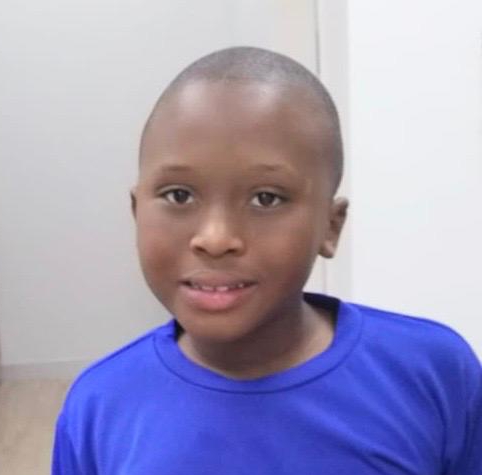
2020.10.03
"Hi Friends
Today I will discuss something close to my heart. I want to stand in the place of other nonspeakers and advocate for them.
Have you ever seen a nonspeaker who hasn’t found their voice? I have. They are so lost and helpless. I feel their pain so much."
"Hi Friends
Today I will discuss something close to my heart. I want to stand in the place of other nonspeakers and advocate for them.
Have you ever seen a nonspeaker who hasn’t found their voice? I have. They are so lost and helpless. I feel their pain so much."
"You see, I was once there too. I had a head full of brains and thoughts and ideas. I had emotions and feelings about everything I saw and heard. I wanted to say something in every situation, but I couldn’t. I had no way to communicate. You cannot imagine how that feels."
"At first you are hopeful but then despair sets in. You start to realise that no one has seen you. You see that the people around you have lost hope too. They are starting to believe what the professionals are telling them."
"They see your intelligence but get brainwashed into believing the professionals. They hear so often that you are low functioning that they doubt themselves."
"So they believe them."
"The worst part is hearing yourself described in this way. It breaks your heart in so many ways. All you want is to be seen for who you are. For someone to say “hey, I see you there in your dyspraxic body”."
"My story is a happy one. I found that person. Tracy [Akha's therapist, Tracy Gunn] saw me immediately and started to help me out of my prison. I am forever grateful that Mommy [@JabulisaKhumalo] brought me to her."
"But many are not so lucky. They are stuck in schools that treat them as low functioning. They have doctors say that they are too stupid to learn. They are stuck in prisons of hell. My heart breaks for them. My soul screams with theirs."
“See me”.
“Save me”.
“Help me”.
“Save me”.
“Help me”.
"We need to find them and liberate them from their dyspraxic bodies.
I will not rest until it’s done.
Yours in Activism
Akha"
Source: akhaswords.home.blog/2020/10/03/the…
I will not rest until it’s done.
Yours in Activism
Akha"
Source: akhaswords.home.blog/2020/10/03/the…
We have a choice.
One option is to enable apraxic autistic people to communicate and to listen to what they say.
The other choice is to continue to disable them.
One option is to enable apraxic autistic people to communicate and to listen to what they say.
The other choice is to continue to disable them.
Featuring an AAC device in a movie would be kinda hypocritical if we then told nonspeaking people we don't want to hear what they have to say.
Let's not do that, OK? 😄
Let's not do that, OK? 😄
Now, for an apraxic person, you can't just pop an AAC device into their hands and then voilà-they're-typing. They have a "body-mind disconnect", remember?
https://twitter.com/ekverstania/status/1330927510599725056
So, when I return to this thread, I am going to give you a bit of technical detail about what nonspeaking autistic people say helps them to develop the purposeful motor skills needed for communication.
Just to clarify (since someone was puzzled by this tweet): #Music is the name of a movie. It hasn't been released yet. The trailer and some of the music from the movie has been released already. "#MusicIsActing" is what fans say in response to criticism.
https://twitter.com/ekverstania/status/1331108094131187712
The goal of this thread is to create awareness of what nonspeaking autists say (something I normally do), not so much to focus on the movie. It just became important to do so in the context of this movie, because the movie snippets released so far are creating misunderstandings.
So, while I'm upset that these misunderstandings are happening, I don't want to focus on that, because it's not the best use of my energy. I can help people more if I focus on creating UNDERSTANDING and encourage people to do the same by sharing the words of nonspeaking people.
I keep promising to come back to 'what nonspeakers say they need', and trying to move to 'what works for motor planning', so let me put one autistic man's writing out there for now and attempt to return to this point, otherwise I will keep getting waylaid! idoinautismland.com/?s=motor
OK, I'm back! It's rainy today in Cape Town, which is good, because we haven't had decent rain for a while.
Please follow @vanessa_vash, an African climate activist, and support lobbying to curb pollution by industrial giants.
Please follow @vanessa_vash, an African climate activist, and support lobbying to curb pollution by industrial giants.
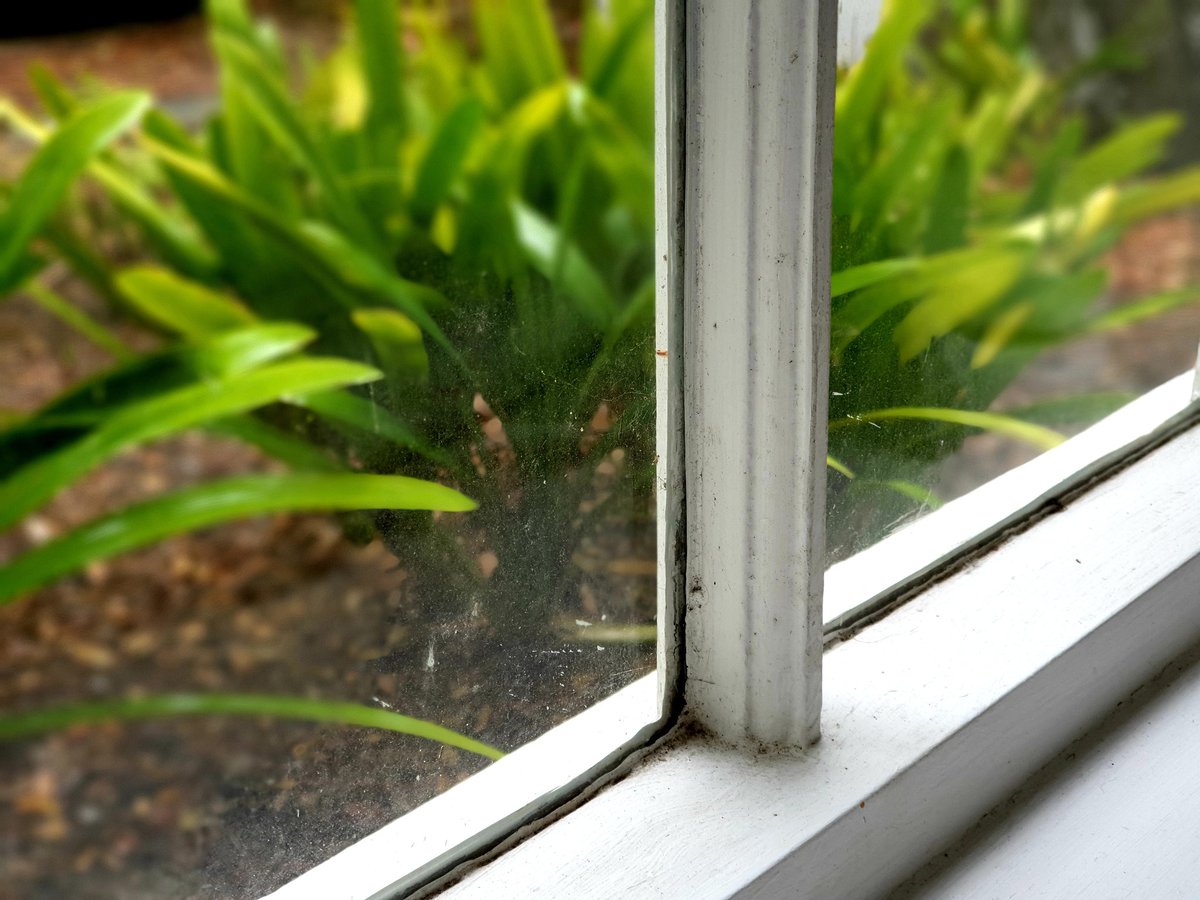
Several nonspeaking South African autists are concerned about climate justice and support the protest action taken by @GretaThunberg, who is also autistic. (I'll post a pic sometime.)
Now, motor skills development.
Some principles which I have learned from the S2C (Spelling to Communicate) crowd include the following (and I'll explain them all in more detail later)...
Some principles which I have learned from the S2C (Spelling to Communicate) crowd include the following (and I'll explain them all in more detail later)...
🟢 First take movement out of fine motor and move it into gross motor. Once that's going well, move back to fine motor.
🟢 Do exercises that involve crossing the midline.
🟢 Don't just do mindless boring movement exercises. Build the motor skills training around interesting content.
🟢 Use rhythm.
(Can we all just take a moment to #StopDropStim now in celebration of all therapists everywhere who recognise that stimming is N-A-T-U-R-A-L for us and that it has a gazillion great uses?)
(Can we all just take a moment to #StopDropStim now in celebration of all therapists everywhere who recognise that stimming is N-A-T-U-R-A-L for us and that it has a gazillion great uses?)
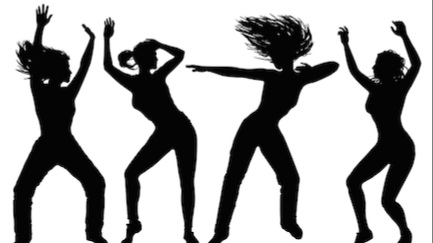
🟢 Use rapid prompting initially (to help the client connect intent with movement output) and gradually fade prompts as the client learns to control movement better.
🟢 Presume competence.
(This doesn't mean that you should assume that the client can already do complicated movements or that they know how to solve a quadratic. I'll provide links later to what it does mean.)
(This doesn't mean that you should assume that the client can already do complicated movements or that they know how to solve a quadratic. I'll provide links later to what it does mean.)
OK, those are SOME of the principles which I can think of from the top of my head. I doubt they're written like this in a list anywhere, but they're certainly deeply understood by S2C Practitioners and many other people involved in motor skills training for communication.
For context, I'm not a therapist of any kind, I'm a disability rights activist.
The rights of nonspeaking autistic people is one of my focus areas for advocacy.
I'm involved in bringing training to Africa to enable nonspeakers to exercise their right to communication.
The rights of nonspeaking autistic people is one of my focus areas for advocacy.
I'm involved in bringing training to Africa to enable nonspeakers to exercise their right to communication.
Now, before I continue talking about motor skills and communication therapies, @0xdef9e0cd pointed out something about my thread earlier which I need to clear up, as I can see how it could be misleading.
I'll drop a link to our conversation here, so you can drill down to the context, then I'll return to it later.
My mother is calling me for her daily foot-rub, so bye. 🙂
Totally off-topic: Here's the Twitter profile pic of the President of 🇹🇼 Taiwan.
https://twitter.com/0xdef9e0cd/status/1330322165007343618?s=19
My mother is calling me for her daily foot-rub, so bye. 🙂
Totally off-topic: Here's the Twitter profile pic of the President of 🇹🇼 Taiwan.

I've been busy, so I haven't completed this thread yet. There's more to say about communication training for nonspeaking apraxic autistic people.
But I want to add something in here first, for clarity:
But I want to add something in here first, for clarity:
You don't have to take down Sia.
You have to lift up nonspeaking autistic people.
Change the world.
You can, by sharing their words.
Here's a thread to get you started.
You have to lift up nonspeaking autistic people.
Change the world.
You can, by sharing their words.
Here's a thread to get you started.
https://twitter.com/ekverstania/status/1331835040184102912?s=19
Deepak George was the first nonspeaking autistic person in South Africa to use Spelling to Communicate, pointing to a letterboard. He was also the first to transition to a keyboard. I remember him from before he started and I remember all the milestones. i-asc.org/deepak-george-…
MONICA: Imagine a map of the world. Where does your mind’s eye land and why?
DEEPAK: India. It is my home. It is my destiny to reach their silent.
DEEPAK: India. It is my home. It is my destiny to reach their silent.
Now, therapy. Bearing in mind that many people struggle with this...
https://twitter.com/ekverstania/status/1330268516008812546?s=19
...the therapy for improved communication must (inter alia) include these things...
https://twitter.com/ekverstania/status/1331327577361887233?s=19
...but must also take cognisance of the anxiety and sensory issues.
That's why in S2C (Spelling to Communicate), a trained person who provides communication support for a nonspeaking person is typically called a Communication and Regulation Partner, or CRP.
People who train to be a particular person's CRP are typically parents, siblings, friends, personal aides/support workers or nannies.
In S2C, training to work with a variety of clients to help them develop purposeful motor skills takes much longer. The credential is called 'S2C Practitioner'.
All of the people being trained as S2C Practitioners as part of the Southern African cohort right now already have a professional background in working with autistic clients (e.g. OTs, SLT/SLPs, etc.).
Currently South Africa has only one fully credentialed S2C Practitioner, Nicola Sowah (@Speech4Africa). Nicola has formal credentials in various other methods too (Hanen, PROMPT, etc.), plus a masters degree in AAC.
There are other methods which nonspeakers recommend too. I'll get back to them later. The main thing to note is that support for communication must take into account that the client doesn't just struggle with movement, but typically also with emotional and sensory dysregulation.
Yikes, it's way past my bedtime! 😬
Later I'll mention other methods which nonspeakers recommend as well (besides S2C).
Here's my lava lamp warming up...
Later I'll mention other methods which nonspeakers recommend as well (besides S2C).
Here's my lava lamp warming up...

Meanwhile here's something by Jordyn Pallett which ties in the earlier observation that it's not just a mind-motor disconnect:
https://twitter.com/ekverstania/status/1227695775800582144?s=19
[Reminder for myself for later: post links to Jordyn and Akha's writing on emotional regulation, and also to Jordyn talking about good qualities for a CRP.]
I'm back, briefly. Here are some petals in the grass at our neighbours' house. It's the last time I'll wander around there freely for a while, because in about 12 hours, they're arriving from Düsseldorf... bringing with them my brand new Hohner CX-12 Jazz Chromatic Harmonica! 

Anyway, before I continue, I just want to pop this thread into here, because if you've read this far, you may be interested in advocating for the communication rights of nonspeaking autistic people. This can help.
https://twitter.com/ekverstania/status/1333798307034923014?s=19
• • •
Missing some Tweet in this thread? You can try to
force a refresh



